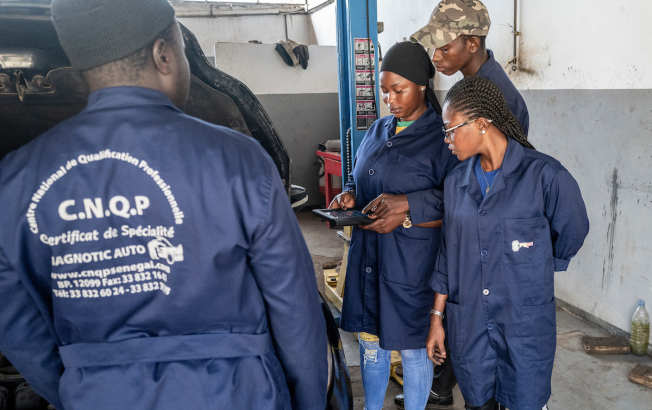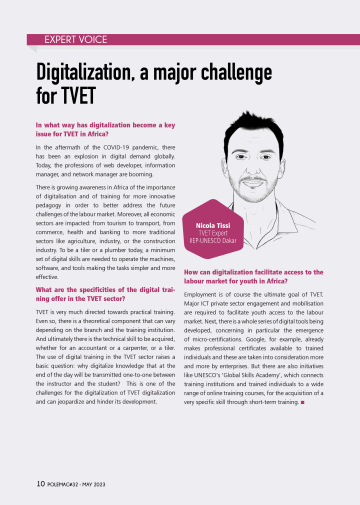In what way has digitalization become a key issue for TVET in Africa?
In the aftermath of the COVID-19 pandemic, there has been an explosion in digital demand globally. Today, the professions of web developer, information manager, and network manager are booming.
There is growing awareness in Africa of the importance of digitalisation and of training for more innovative pedagogy in order to better address the future challenges of the labour market. Moreover, all economic sectors are impacted: from tourism to transport, from commerce, health and banking to more traditional sectors like agriculture, industry, or the construction industry. To be a tiler or a plumber today, a minimum set of digital skills are needed to operate the machines, software, and tools making the tasks simpler and more effective.
What are the specificities of the digital training offer in the TVET sector?
TVET is very much directed towards practical training. Even so, there is a theoretical component that can vary depending on the branch and the training institution.
And ultimately there is the technical skill to be acquired, whether for an accountant or a carpenter, or a tiler.
The use of digital training in the TVET sector raises a basic question: why digitalize knowledge that at the end of the day will be transmitted one-to-one between the instructor and the student? This is one of the challenges for the digitalization of TVET digitalization and can jeopardize and hinder its development.
How can digitalization facilitate access to the labour market for youth in Africa?
Employment is of course the ultimate goal of TVET. Major ICT private sector engagement and mobilisation are required to facilitate youth access to the labour market. Next, there is a whole series of digital tools being developed, concerning in particular the emergence of micro-certifications. Google, for example, already
makes professional certificates available to trained individuals and these are taken into consideration more and more by enterprises. But there are also initiatives like UNESCO’s ‘Global Skills Academy’, which connects training institutions and trained individuals to a wide range of online training courses, for the acquisition of a very specific skill through short-term training.



